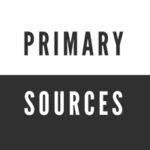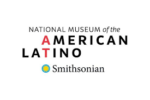Global Learning
Here is an overview of global competence and reasons why it should be used and curriculum to use in the classroom.
Expanding Horizons illustrates key concepts, provide concrete examples, and suggest activities across a wide variety of content and age ranges to give a sense of the potential for global learning.
These global learning “quick sheets” are one-page examples of developmentally appropriate unit plan outlines in typical afterschool content areas.
Mapping the Nation is a interactive map that pulls together demographic, economic, and educational information for students to learn about the country.
This guide provides activities in global learning to every age level.
Here, teachers can use these competency tests to see where their students fall in the global learning subject.
Primary Source promotes history and humanities education by connecting educators to people and cultures throughout the world by providing learning opportunities and curriculum resources for K-12 educators.
Here is a complied list of leaders and educators who talk about global learning on twitter.
Kid Power is an interactive video platform for students in grades Kindergarten through 8th. Kid Power combines philanthropy and fun with mental health, social-emotional learning (SEL), child rights, and equity and access for all students.
The National Museum of the American Latino in partnership with the Smithsonian offers Hispanic Heritage Month Resources for the community to join in the celebration from September 15 – October 15. This resource offers virtual exhibits, educational resources, as well as discussions about the importance of celebrating Hispanic Heritage Month.
A Native woman-led racial and social justice organization, IllumiNative has created free resources (in partnership with the National Indian Education Association and Amplifier) that increase the visibility of and challenge the negative narratives of Indigenous peoples.
Resources available include youth and adult publications centered in advocacy, awareness, and research. Lesson plans include remote learning opportunities that explore the work of Indigenous leaders and changemakers in digital tool formats for grades PreKindergarten through 8th grades.
In celebration and honor of Native Heritage Month, the National Educational Association (NEA) offers year-round resources to share the narrative of Indigenous People groups.
Resources include lesson plan units for children grades Kindergarten through 12 that focus on history, accurate representation, Thanksgiving lesson plans from the Native American perspective, background resources, printables/posters, videos, and recommended readings. The curated collection is in partnership with organizations centered in social justice and advocacy.
NEA Note: “Educators should be mindful of cultural appropriation when teaching about other cultures and understand that Native American students in class may experience lessons differently than non-Native students.”








